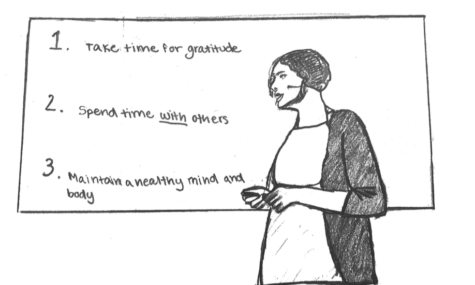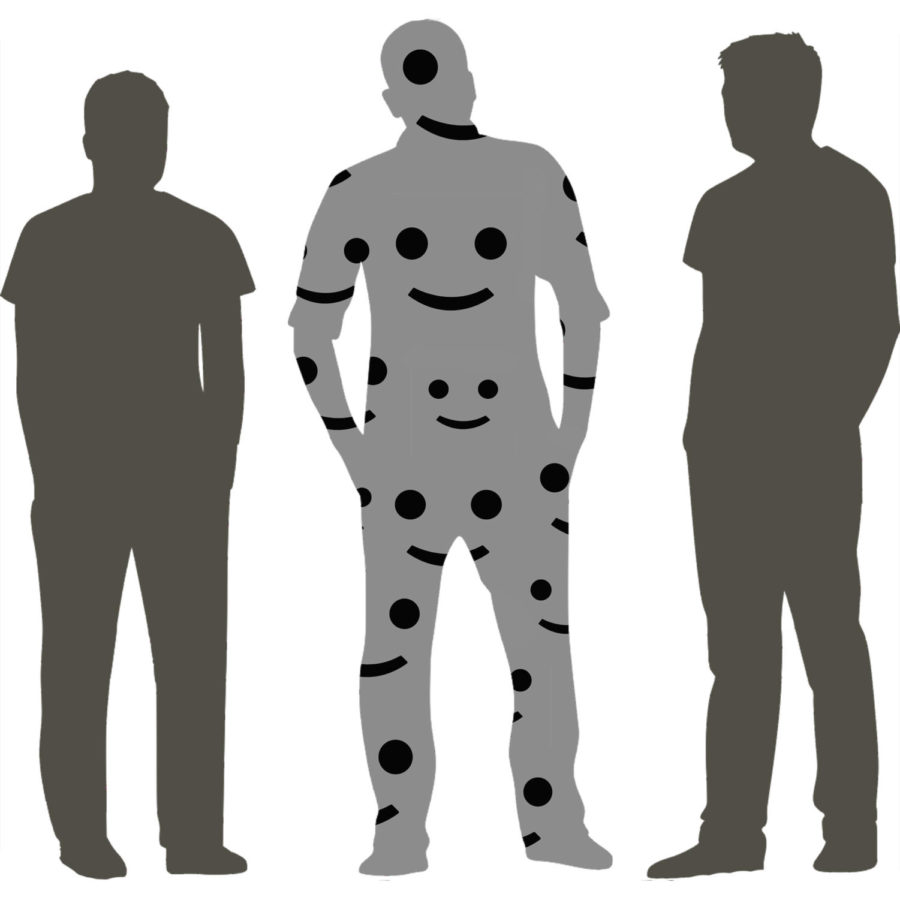WashU Professor details three steps to becoming happier
Every day, billions of people around the world wake up wanting to have a great day. They want to laugh, smile, and be around the people they love. They want to be happy. But how does one truly achieve this goal of happiness?
This summer, I attended a lecture held by Tim Bono, professor of Psychology in Arts & Sciences at Washington University in St. Louis. Bono’s lecture was called, ‘When Likes Aren’t Enough: A Crash Course in the Science of Happiness.’ One of his key findings is that positive psychology is not actually about being happy all the time. Instead, it is about “emotional experiences on a continuum.” Happiness does not simply come from the removal of unhappiness. According to Bono, it is important for people to know that “‘being happy all the time’ is not about ‘becoming happy,’ it is about ‘becoming happier.’” According to his studies, there are three very simple habits for becoming happier.
These three simple habits include taking time for gratitude, spending time with others, and maintaining a healthy mind and body, especially with sleep and exercise.
Taking time for gratitude is about realizing all of the amazing things around, and being thankful for them. A recent harvard gratitude study has proven that writing down at least three things that you are grateful for everyday has lead people to feel more positively about their lives.
Some people believe that money can buy happiness. However, according to Bono, happiness=what we have/what we want. Therefore, as the numerator increases, so does the denominator, which means that the more money you have, the more things you want because your expectations begin to grow. For example, according to a CNBC study, people who win the lottery are generally extremely happy for the first few weeks, but as time goes by, their happiness settles to the same baseline as before they had money.
That being said, Bono has found that there are two situations where money can buy happiness. One of these situations can occur if you stand below the poverty line and money gives you financial stability that you lacked before. The second situation is if the money is spent on someone else.
According to Bono, spending time with people is the second habit for happiness. Feeling as if you have a place in the world and are needed in society is key. The more time spent with others, the more affect you have on their lives which gives you purpose. The more you increase the positive emotions of another person, the happier you become.
The third habit for happiness is maintaining a healthy mind and body. Parents often bug their children about not getting enough sleep, and it is scientifically proven that the more sleep you get, the happier you are the next day.
According to the Division of Sleep Medicine at Harvard Medical School, getting 12 hours of sleep one night and then 3 hours the next is far worse for your brain and body than getting a consistent 7 hours per night. Inconsistent sleeping patterns can interrupt your internal rhythm. Sleep leads you to be more in charge of your mind and less overwhelmed. It is like the “reset” button on your brain.
Exercise is also a great way to be healthier and happier at the same time, since it releases endorphins, which trigger positive feelings in your body. Exercising does not have to be running 10 miles—it can be as simple as walking around the block for 20 minutes every day.
Urban School health teacher Jenn Epstein says that to “clear [her] mind when tensions are high,” she likes to walk her dog around the neighborhood. It is an easy way to get fresh air and exercise, and it gives her the ability to perform the first habit for happiness: taking time for gratitude. “Often, people are so focused on getting from point A to point B that they miss their surroundings completely,” said Epstein.
Epstein also said that it is important to “find your passions.” “Some people are lucky enough to have passions come to them, but most people have to search.” She believes that a big part of finding your passions is, “doing things out of your comfort zone.” In her 20s, Epstein found her passion for rock climbing which “had a huge effect on the trajectory of [her] life.” It changed the types of people she hung out with and how she chose to spend her time.
It is also important to know that if you try something and it is not your thing, then move on and try something else. Epstein says she stresses to students and parents to “not sweat the small stuff.”
 Illustration by Phoebe Grandi, Visuals Editor
Illustration by Phoebe Grandi, Visuals Editor












